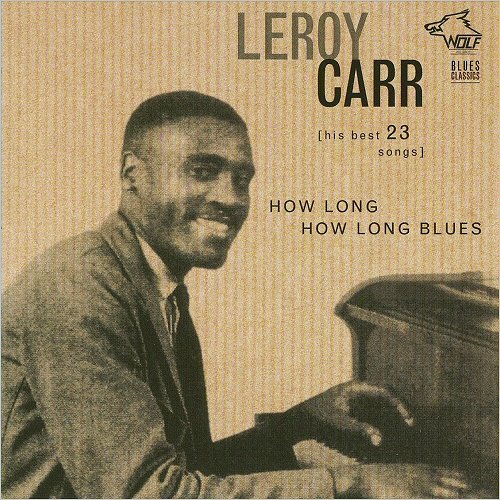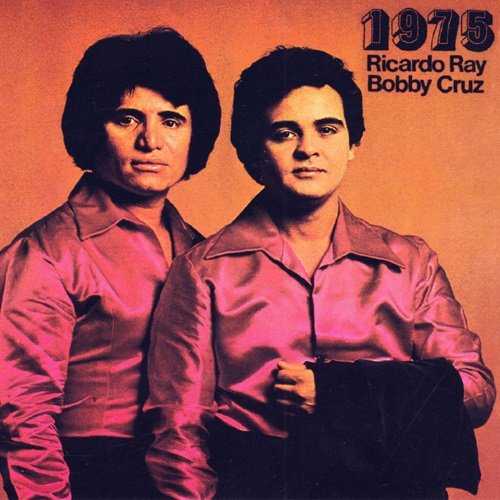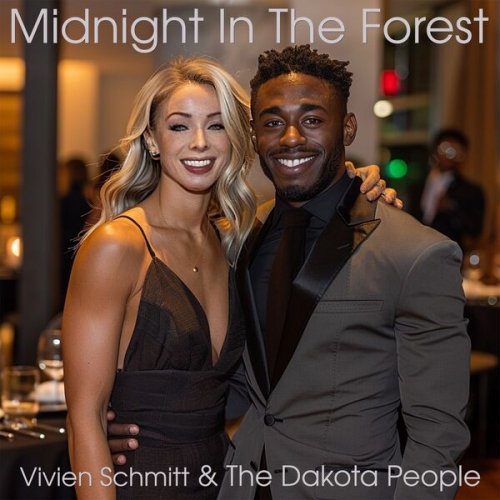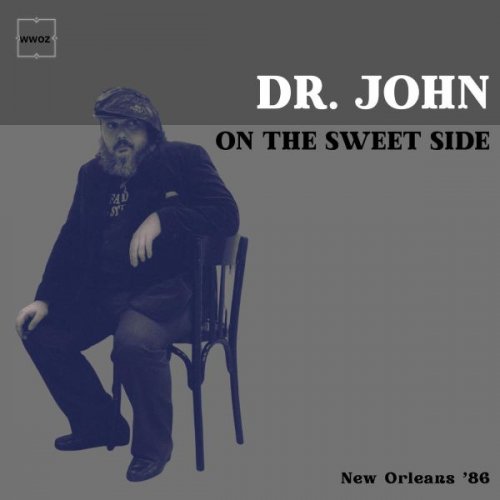Leroy Carr - How Long How Long Blues (2008)

Artist: Leroy Carr
Title: How Long How Long Blues
Year Of Release: 2008
Label: Wolf Records
Genre: Country Blues
Quality: FLAC (tracks) | MP3 320 kbps
Total Time: 71:10
Total Size: 256 MB | 172 MB
WebSite: Album Preview
Tracklist:Title: How Long How Long Blues
Year Of Release: 2008
Label: Wolf Records
Genre: Country Blues
Quality: FLAC (tracks) | MP3 320 kbps
Total Time: 71:10
Total Size: 256 MB | 172 MB
WebSite: Album Preview
1. How Long How Long Blues (3:07)
2. How Long How Long Blues No. 2 (2:46)
3. Prison Bound Blues (3:06)
4. Gambler's Blues (3:08)
5. Naptown Blues (2:45)
6. The New How Long How Long Blues (3:06)
7. Rainy Day Blues (3:21)
8. I'm Going Back To Tennessee (3:14)
9. Goodbye Blues (2:47)
10. Sloppy Drunk Blues (2:57)
11. Long Road Blues (3:12)
12. Low Down Dog Blues (2:46)
13. How Long Has That Evening Train Been Gone (2:52)
14. Midnight Hour Blues (3:05)
15. Mean Mistreater Mama (3:05)
16. Hurry Down Sunshine (3:34)
17. Shady Lane Blues (3:42)
18. Blues Before Sunrise (3:32)
19. Barrel House Woman (2:52)
20. I Believe I'll Make A Change (2:57)
21. Hard Hearted Papa (3:07)
22. Arlena (3:03)
23. When The Sun Goes Down (2:55)
Carr was the most influential male blues singer and songwriter of the first half of the 20th century, but he was nothing like the current stereotype of an early bluesman. An understated pianist with a gentle, expressive voice, he was known for his natty suits and lived most of his life in Indianapolis. His first record, "How Long — How Long Blues," in 1928, had an effect as revolutionary as Bing Crosby's pop crooning, and for similar reasons. Previous blues stars, whether vaudevillians like Bessie Smith or street singers like Blind Lemon Jefferson, had needed huge voices to project their music, but with the help of new microphone and recording technologies, Carr sounded like a cool city dude carrying on a conversation with a few close friends.
Carr's lyrics were carefully written, blending soulful poetry with wry humor, and his music had a light, lilting swing that could shift in a moment to a driving boogie. Rather than Smith's vaudeville jazz combos or Jefferson's idiosyncratic country picking, Carr sang over the solid beat of his piano and the biting guitar of his constant partner Francis (Scrapper) Blackwell. The outcome was a hip, urban club style that signaled a new era in popular music. ~Elijah Wald
Carr's lyrics were carefully written, blending soulful poetry with wry humor, and his music had a light, lilting swing that could shift in a moment to a driving boogie. Rather than Smith's vaudeville jazz combos or Jefferson's idiosyncratic country picking, Carr sang over the solid beat of his piano and the biting guitar of his constant partner Francis (Scrapper) Blackwell. The outcome was a hip, urban club style that signaled a new era in popular music. ~Elijah Wald


![Amilton Godoy, Gabriel Grossi - Os Filhos de Villa (2026) [Hi-Res] Amilton Godoy, Gabriel Grossi - Os Filhos de Villa (2026) [Hi-Res]](https://img.israbox.com/img/2026-03/04/8iszlwylc8acf0ahslw15abks.jpg)
![Clifford Brown - Oldies Mix: Brownie (Remastered) (2025) [Hi-Res] Clifford Brown - Oldies Mix: Brownie (Remastered) (2025) [Hi-Res]](https://img.israbox.com/img/2026-03/03/2kclmln8ho6kq4e7w6k0ouqcm.jpg)

![Julius Hemphill - Dogon A.D. (Remastered) (1972/2026) [Hi-Res] Julius Hemphill - Dogon A.D. (Remastered) (1972/2026) [Hi-Res]](https://www.dibpic.com/uploads/posts/2026-03/1772427281_cover.png)

![VA - Wamono Disco: Nippon Columbia Disco & Boogie Hits 1978-1982 (2024) [Viny] VA - Wamono Disco: Nippon Columbia Disco & Boogie Hits 1978-1982 (2024) [Viny]](https://www.dibpic.com/uploads/posts/2026-03/1772454355_cover.jpg)
![Rhythm Shaw - Nothing To Lose (2026) [Hi-Res] Rhythm Shaw - Nothing To Lose (2026) [Hi-Res]](https://www.dibpic.com/uploads/posts/2026-03/1772508812_cover.jpg)